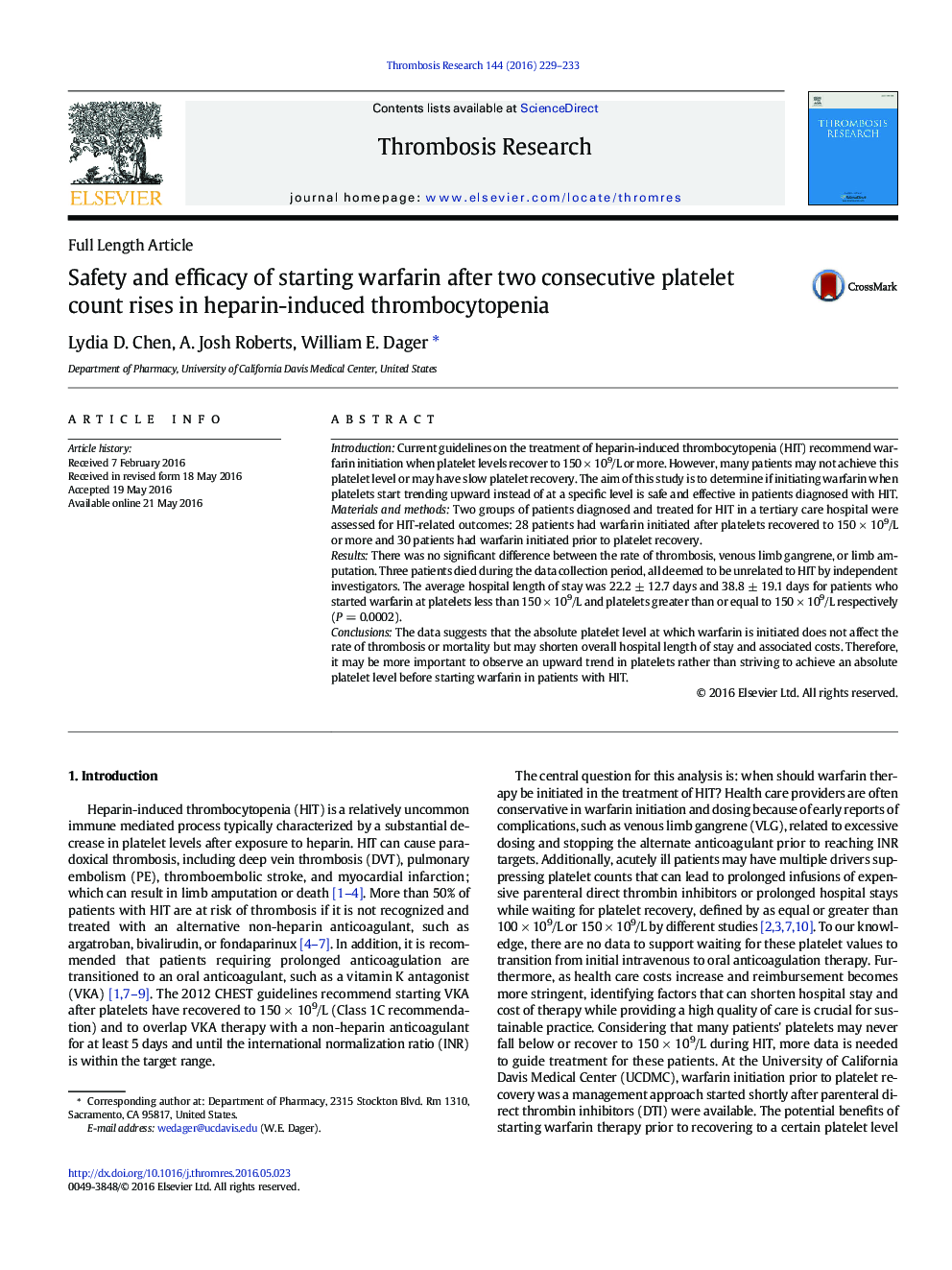| Article ID | Journal | Published Year | Pages | File Type |
|---|---|---|---|---|
| 3026843 | Thrombosis Research | 2016 | 5 Pages |
•A novel method of warfarin initiation in heparin-induced thrombocytopenia treatment is proposed.•The method uses consecutive rising platelet levels instead of a target platelet level.•This method may decrease hospital length of stay without increasing thrombosis.
IntroductionCurrent guidelines on the treatment of heparin-induced thrombocytopenia (HIT) recommend warfarin initiation when platelet levels recover to 150 × 109/L or more. However, many patients may not achieve this platelet level or may have slow platelet recovery. The aim of this study is to determine if initiating warfarin when platelets start trending upward instead of at a specific level is safe and effective in patients diagnosed with HIT.Materials and methodsTwo groups of patients diagnosed and treated for HIT in a tertiary care hospital were assessed for HIT-related outcomes: 28 patients had warfarin initiated after platelets recovered to 150 × 109/L or more and 30 patients had warfarin initiated prior to platelet recovery.ResultsThere was no significant difference between the rate of thrombosis, venous limb gangrene, or limb amputation. Three patients died during the data collection period, all deemed to be unrelated to HIT by independent investigators. The average hospital length of stay was 22.2 ± 12.7 days and 38.8 ± 19.1 days for patients who started warfarin at platelets less than 150 × 109/L and platelets greater than or equal to 150 × 109/L respectively (P = 0.0002).ConclusionsThe data suggests that the absolute platelet level at which warfarin is initiated does not affect the rate of thrombosis or mortality but may shorten overall hospital length of stay and associated costs. Therefore, it may be more important to observe an upward trend in platelets rather than striving to achieve an absolute platelet level before starting warfarin in patients with HIT.
